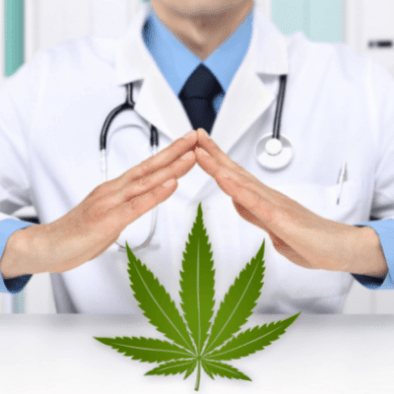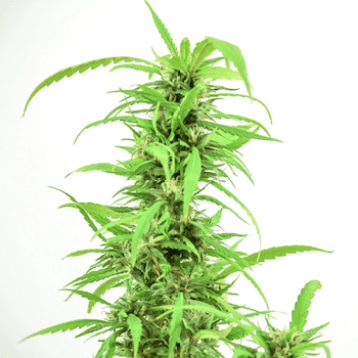What is “public health?” Since 2020, the term has entered the mainstream, but public health was around long before covid. Canadian politicians crafted cannabis legalization with “public health” goals in mind.
Instead of the traditional argument for legal cannabis, which is that you have a right to your body.
But let’s give them the benefit of the doubt. Like most things in life, let’s apply the 80/20 rule. 80% of “public health” are hapless bureaucrats who believe they are improving the world.
The other 20% are busybody control freaks.
They have the same mentality as the Temperance Movement or the Puritans. These people want to see more restrictions on the cannabis industry because some parents can’t be bothered to keep edibles out of their children’s reach.
These people want to bring back mask mandates despite the lack of evidence of their efficacy.
(If the meta-analysis of randomized control trials came out in favour of masking, we’d never hear the end of it, but because the conclusions didn’t support the narrative, the “fact checkers” have downplayed the study’s significance).
But what is public health? If governments must curtail our fundamental rights in the name of it, then we’ll need more than some broad, ambiguous term.
There is a Public Health Agency of Canada. They say their activities “focus on preventing disease and injuries, responding to public health threats, promoting good physical and mental health, and providing information to support informed decision making.”
But how accurate is this?
What is Public Health?
Is it like a public school? There are all kinds of schools, public and private. “Public” school refers to state-controlled and taxpayer-funded education.
Public school refers to a specific building or system, but “public education” or “public awareness” refers to government messages aimed at the general populace.
So, it’s clear that “public” means anything the state does. It’s a textbook example of doublespeak, in which “public” refers to two concepts.
For example, “public health” can refer to the general health of the Canadian public or the state-sponsored program of “public health,” which varies across different levels of government.
The point is to narrow the range of allowable thought. Suppose we identify public health with government bureaucrats. In that case, no one will seriously ask whether a lack of government “experts” results in better public health (that is, the public’s general health).
If it sounds confusing, that’s the point. That’s why Orwell wrote an entire book on the subject.
No, Really. What Is It?
What is public health? Let’s say it focuses on the well-being of entire communities or regions rather than individual health concerns. They focus on preventing diseases, injuries, and health threats. They do this through massive propaganda campaigns and political interventions.
You could extend the public health definition to food safety standards. Indeed, we consider cannabis, tobacco, and alcohol control the domain of “public health.”
Public health gathers and analyzes data to make reports and advise governments. Canada’s agency thinks “white supremacism” and “climate change” are some of the most significant factors affecting the health of Canadians.
Instead of, you know, cardiovascular diseases, which is Canada’s leading cause of death.
What About Exercise and Nutrition?
A conventional definition may include the promotion of healthy behaviours and lifestyles—things like exercise and nutrition. And indeed, exercise and nutrition are at the core of human health.
But, as was apparent during covid, “public health” doesn’t mean the general well-being of the populace. If that were the case, instead of demanding we place ourselves under house arrest, they would have promoted vitamin D consumption. (I.e. Go for a walk in the sun).
Likewise, obesity was an essential factor in determining whether covid would send you to the ICU. But did public health tell the public to stop consuming sugars and preservatives? To start exercising?
No, that would be “fat-shaming.” Obesity, when not part of the “body positivity” movement, is considered a disease that only pharma intervention can alleviate.
(Likewise, in 2020-21, speaking of “natural immunity” was like saying “Voldemort.” The only approved remedy to covid was an experimental jab that made pharmaceutical companies a lot of money).
If the “public health” experts are scratching their heads, wondering what’s happened to their credibility, then look no further than the inconsistent and corporate-friendly messaging.
We’ve researched who butters your bread, and we’re not happy. But, you know, blame the rise of “online right-wing extremism” instead. See where that leads you.
A Better Public Health
A better public health involves redefining what we mean by “public.” Instead of grouping everyone based on geography, better public health can cater to specific populations.
In essence, better public health prioritizes individual freedoms over collective interests. There is no genuine “collective” interest, just the spokesperson claiming to speak for “the people.”
A meaningful collective requires consent from all its members. And consent is only granted through voluntary association and exchange. The “social contract” justifying government authority is as concrete as the “divine right of kings” that excused monarchs.
“Implicit consent” – that we consent to public health just by living here – is also a poor argument. Applied to a different situation, and it’s justifying immoral actions based on the status of the victim.
In other words – “Of course, we gave her an ultimatum between experimental jabs and bringing home a paycheque. Look at what she was wearing! She was asking for it!”
Insomuch that the government is in the health business, its role should be minimal. Governments can “protect” people from direct harm by enforcing property rights and preventing fraud.
Leave the nutrition and exercise advice to experts who haven’t been bought off by pharma and large processed food manufacturers.
Any “public health” action that involves coercion – such as mandatory vaccinations, quarantine measures, and excise taxes – cannot be justified by typical ethical standards.
You and I can’t force people to behave a certain way under threat of imprisonment.
But this is precisely what “public health” is—part of the apparatus of compulsion and coercion. A better system sees the voluntarily-funded organizations of civil society play more significant roles.
Cannabis Decentralization
Canada never legalized cannabis based on people’s fundamental right to consume this non-lethal herb. The Trudeau government did it for “public health” reasons: to keep it out of children’s hands and crack down on organized crime.
This was all propaganda we routinely debunked. And at this stage in the game, the propaganda discredits itself.
But suppose there’s a small community somewhere in the prairies that doesn’t care for cannabis. They may not even care for alcohol. It may be a dry community with no weed or gambling, and everybody attends church every Sunday morning.
Why should their health information mirror that of a 20-something couple who live in their van, smoke weed and spend their time surfing and snowboarding?
Is “public health” a one-size-fits-all concept, or is this another example of the government’s forced egalitarianism?
How is it in the public’s interest to cap cannabis edibles at 10mg when producers and consumers want higher doses? Who is this “public” these so-called experts are protecting?
As with Canada’s cannabis legalization, or the covid restrictions and vaccine mandates, often the goal of “public health” isn’t to serve the public.
“Trust the Science” is another way of saying “Follow the Money.”
Whether it’s promoting planet-destroying corporate mono-crop agriculture (under the term “plant-based”), false links between cannabis and psychosis, or demanding you inject yourself with experimental pharma chemicals lest you lose your livelihood and thus food on the table and roof over your head.
Public health is a religion. A belief in Science™ and a method that justified lobotomies, Thalidomide, downplayed tobacco’s dangers and over-prescribed opioids.
What is “public health?” It is the enemy of the people.
- SEO Powered Content & PR Distribution. Get Amplified Today.
- PlatoData.Network Vertical Generative Ai. Empower Yourself. Access Here.
- PlatoAiStream. Web3 Intelligence. Knowledge Amplified. Access Here.
- PlatoESG. Carbon, CleanTech, Energy, Environment, Solar, Waste Management. Access Here.
- PlatoHealth. Biotech and Clinical Trials Intelligence. Access Here.
- Source: https://cannabislifenetwork.com/what-is-public-health/







